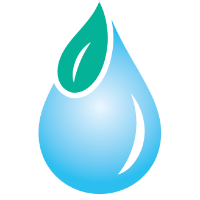Daugherty Water for Food Global Institute

Daugherty Water for Food Global Institute: Faculty Publications
ORCID IDs
http://orcid.org/0000-0002-6322-0305
http://orcid.org/0000-0002-2218-4934
http://orcid.org/0000-0001-6994-4454
Date of this Version
7-21-2018
Document Type
Article
Citation
2018. The Authors
Abstract
Understanding water user behavior and its potential outcomes is important for the development of suitable water resource management options. Computational models are commonly used to assist water resource management decision making; however, while natural processes are increasingly well modeled, the inclusion of human behavior has lagged behind. Improved representation of irrigation water user behavior within models can provide more accurate and relevant information for irrigation management in the agricultural sector. This paper outlines a model that conceptualizes and proceduralizes observed farmer irrigation practices, highlighting impacts and interactions between the environment and behavior. It is developed using a bottom-up approach, informed through field experience and farmer interaction in the state of Uttar Pradesh, northern India. Observed processes and dynamics were translated into parsimonious algorithms, which represent field conditions and provide a tool for policy analysis and water management. The modeling framework is applied to four districts in Uttar Pradesh and used to evaluate the potential impact of changes in climate and irrigation behavior on water resources and farmer livelihood. Results suggest changes in water user behavior could have a greater impact on water resources, crop yields, and farmer income than changes in future climate. In addition, increased abstraction may be sustainable but its viability varies across the study region. By simulating the feedbacks and interactions between the behavior of water users, irrigation officials and agricultural practices, this work highlights the importance of directly including water user behavior in policy making and operational tools to achieve water and livelihood security.
Included in
Environmental Health and Protection Commons, Environmental Monitoring Commons, Hydraulic Engineering Commons, Hydrology Commons, Natural Resource Economics Commons, Natural Resources and Conservation Commons, Natural Resources Management and Policy Commons, Sustainability Commons, Water Resource Management Commons


Comments
Water Resources Research 10.1029/2018WR023038